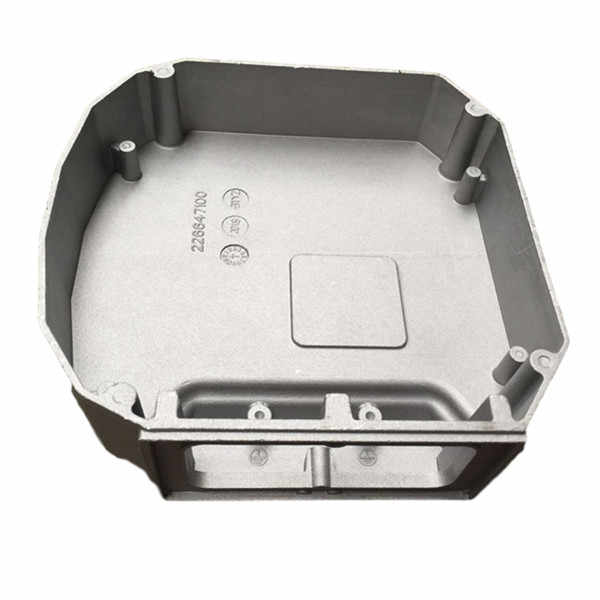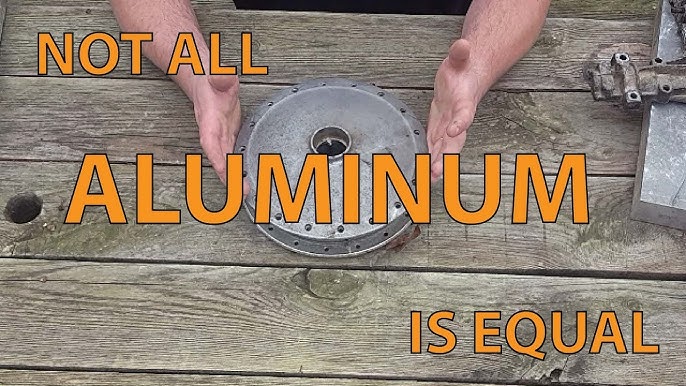How Alcast Company can Save You Time, Stress, and Money.
How Alcast Company can Save You Time, Stress, and Money.
Blog Article
What Does Alcast Company Do?
Table of ContentsAn Unbiased View of Alcast CompanySee This Report on Alcast CompanyAlcast Company for BeginnersAlcast Company Things To Know Before You BuyWhat Does Alcast Company Mean?Little Known Facts About Alcast Company.
Chemical Comparison of Cast Light weight aluminum Alloys Silicon promotes castability by reducing the alloy's melting temperature and enhancing fluidity throughout spreading. In addition, silicon adds to the alloy's toughness and put on resistance, making it useful in applications where resilience is crucial, such as automobile components and engine components.It likewise boosts the machinability of the alloy, making it easier to refine right into finished products. This way, iron adds to the overall workability of light weight aluminum alloys. Copper raises electrical conductivity, making it useful in electrical applications. It likewise boosts deterioration resistance and includes in the alloy's total toughness.
Manganese contributes to the strength of aluminum alloys and improves workability. Magnesium is a lightweight component that supplies strength and effect resistance to light weight aluminum alloys.
Alcast Company Fundamentals Explained
It enables the manufacturing of light-weight components with outstanding mechanical properties. Zinc boosts the castability of light weight aluminum alloys and aids manage the solidification procedure throughout casting. It enhances the alloy's stamina and firmness. It is frequently located in applications where complex forms and great information are required, such as decorative spreadings and particular automobile parts.

The main thermal conductivity, tensile strength, yield stamina, and prolongation vary. Select appropriate resources according to the efficiency of the target item generated. Among the above alloys, A356 has the highest possible thermal conductivity, and A380 and ADC12 have the lowest. The tensile restriction is the opposite. A360 has the finest return toughness and the greatest elongation rate.
Rumored Buzz on Alcast Company

In precision spreading, 6063 is appropriate for applications where intricate geometries and high-grade surface finishes are vital. Instances consist of telecommunication units, where the alloy's superior formability permits streamlined and aesthetically pleasing designs while preserving structural integrity. In the Illumination Solutions market, precision-cast 6063 elements develop elegant and efficient lights components that call for elaborate forms and good thermal efficiency.
It causes a better surface area finish and much better corrosion resistance in A360. In addition, the A360 displays exceptional elongation, making it suitable for complicated and thin-walled components. In accuracy casting applications, A360 is fit for markets such as Consumer Electronics, Telecommunication, and Power Tools. Its boosted fluidity enables complex, high-precision elements like smartphone cases and interaction device real estates.
Alcast Company - Questions
Its one-of-a-kind residential or commercial properties make A360 a valuable selection for precision spreading in these markets, improving product resilience and high quality. Light weight aluminum alloy 380, or A380, is a commonly utilized spreading alloy with numerous distinct attributes. It offers exceptional castability, making it an excellent choice for accuracy casting. A380 exhibits excellent fluidness when molten, making certain intricate and comprehensive molds are accurately replicated.
In accuracy spreading, aluminum 413 radiates in the Consumer Electronic Devices and Power Tools sectors. This alloy's remarkable rust resistance makes it an outstanding selection for outside applications, ensuring long-lasting, long lasting products in the pointed out markets.
Alcast Company - Questions
Once you have actually made a decision that the aluminum die casting procedure appropriates for your task, a crucial following action is picking the most appropriate alloy. The aluminum alloy you pick will significantly affect both the casting process and the buildings of the end product. Since of this, you must make your decision thoroughly and take an educated technique.
Identifying the most ideal aluminum alloy for your application will certainly mean evaluating a broad range of qualities. These relative alloy attributes adhere to the North American Pass Away Casting Association's standards, and we have actually separated them into two categories. The very first category addresses alloy qualities that influence the manufacturing process. The second covers qualities affecting the buildings of the end product.
Alcast Company Things To Know Before You Buy
The alloy you choose for die casting directly impacts numerous facets of the casting procedure, like exactly how simple the alloy is to work with and Related Site if it is susceptible to casting issues. Hot breaking, also referred to as solidification fracturing, is a typical die spreading issue for aluminum alloys that can cause interior or surface-level rips or cracks.
Certain aluminum alloys are much more vulnerable to hot breaking than others, and your choice needs to consider this. It can harm both the cast and the die, so you ought to look for alloys with high anti-soldering properties.
Rust resistance, which is already a significant feature of aluminum, can vary considerably from alloy to alloy and is an essential particular to take into consideration relying on the ecological conditions your item will be exposed to (aluminum metal casting). Use resistance is an additional property frequently sought in light weight aluminum products and can differentiate some alloys
Report this page